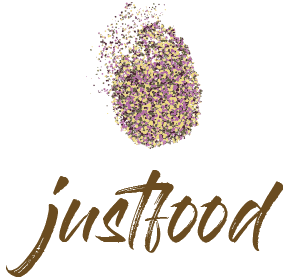
JUSTFOOD
From Alternative Food Networks to Environmental Justice
Putting 'just food' on the table is still a global challenge. Critical research on environmental justice and alternative food movements (Holt Giménez & Shattuck 2011, Agyeman & McEntee 2014) indicates that the 'quality' turn in food sustainability should be examined in the processes rather than product/outcomes: justice and democratization are the key terms of the transitional and transformational work of AFMs. The literatureshows that the most harmed by injustices (hunger, insecurity, unhealthy) are, first of all, the low-income communities in marginalized areas. In other words, quality food has become a privilege rather than a right (Ploeg 2010, Allen 2010, Anguelovski 2013, 2016). In this context, 'cultivating 'just food' aims 'to ensure a better quality of life for all, now and into the future, in a just and equitable manner, whilst living within the limits of supporting ecosystems' (Agyeman et all 2003, p. 5).
The underlying questions of this research project are: How do AFMs contribute to the 'just sustainability' of food? What are the challenges and potentialities of cultivating 'just food'? Drawing theoretically and methodologically on performativity and everyday-life practices, JustFood brings policy-relevant knowledge on the transformative potential of AFMs in Europe. We posit that the potential for 'just food' lies in the micro-politics of the different social categories involved in AFMs (peasants, activists, researchers, politicians) and their embeddedness within broader socialenvironmental conflicts and movements which may transform food practices towards more open, socially inclusive, equalitarian power relations of food production and consumption. In other words, practices such as seed-saving, sharing, cooking, transporting, and planning the 'co-production' of food may become tactics of 'just sustainability' which make life 'liveable' and food 'eatable' for all. More 'just food' indicates a collectively re-negotiable bundle of relations, in the socio-political, economic, cultural and ecological sense. We employ ethnographic methods to document these specific everyday practices and experiences in Romania and Portugal, two peripheral countries of crisis ridden Europe which both resemble and differ in terms of agri-food cultures, histories of authoritarian regimes power and socio-environmental justice movements. More specifically, we are looking at how the various actors involved in AFMs ? peasants, activists, fishers etc. - are embodying and enacting, in everyday practices of food production and consumption, the broader underlying conflicts and movements over socio-environmental just conditions.
This work was financed by FEDER - European Fund for Regional Development funds through the COMPETE 2020 - Operational Programme for Competitiveness and Internationalisation "POCI-01-0145-FEDER-029355", and by Portuguese funds through FCT - Foundation for Science and Technology in the framework of the project PTDC/GES-AMB/29355/2017.
Andreea Ogrezeanu
Hestia Delibas
Irina Castro
Irina Velicu (coord)
Lúcia Fernandes
Rita Calvário
Sérgio Pedro
Stefania Barca


